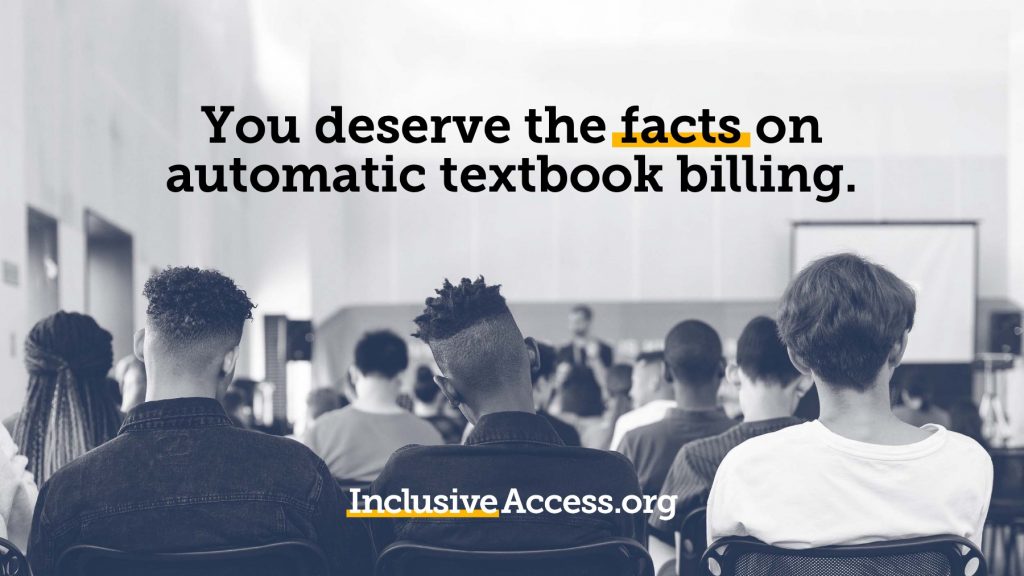Help us protect the commons. Make a tax deductible gift to fund our work. Donate today!
The price of college textbooks in the United States (and many other countries) has skyrocketed over the past 30 years. Two-thirds of college students say that they’ve delayed buying a textbook because it was too expensive—even though 90% of those students worry that not having the textbook will affect their course grade. In addition, more than 80% of faculty agree that the cost of course materials is a serious problem.
Against this backdrop, a new sales model known as “Inclusive Access” has taken off. Also known as automatic textbook billing, this model adds the cost of digital course content into students’ tuition and fees. Hardly known five years ago, one in three college students reported participating in at least one Inclusive Access course during the 2020-21 academic year.
How exactly does Inclusive Access work? Does it really really save students money? What about this kind of program is “inclusive”? Straightforward answers to these questions aren’t always easy to find.
InclusiveAccess.org is a community-driven initiative to raise awareness of the facts about automatic textbook billing. The site aims to be a one-stop shop for information, tools, and other resources that can help administrators, faculty, students, and policymakers make smart decisions about how to address textbook costs on campus.
InclusiveAccess.org was developed by SPARC with generous support from the Michelson 20MM Foundation. Partners include AAC&U, Academic Senate for California Community Colleges, Creative Commons, DigiTex, Student PIRGs, Open Education Global, and OpenStax. The initiative is also forming an advisory committee with representation from a broad range of stakeholders across higher education.
Creative Commons and our partners hope that InclusiveAccess.org will help decision makers fully consider and understand how automatic textbook billing can impact their institution and students. We also hope that it empowers students to ask important questions about how they are charged for textbooks, and to exercise freedom over how they access course materials.
Check back at InclusiveAccess.org regularly for updates on the latest facts, news, and case studies on automatic textbook billing, as well as additional tools and resources. Join the email list and follow @TextbookBilling to get involved.
Of course, the problem of high textbook costs can be solved with CC-licensed Open Educational Resources (OER) as a way to promote more equitable access to course materials. See the UNESCO Recommendation on OER for actions your government and/or educational institution can take to support open education resources, practices and policy.
Posted 06 October 2021